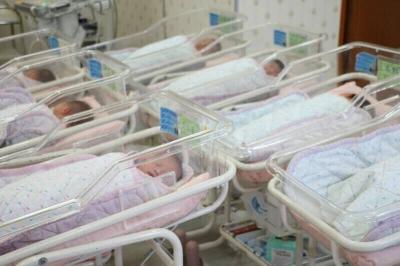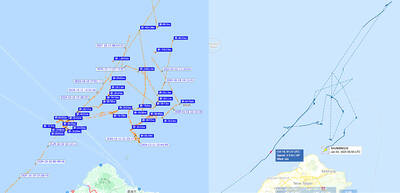Low, government-regulated university tuition rates nationwide are eroding the quality of higher education amid a decades-long influx of students, university presidents said yesterday.
In a heated public debate on tuition reform at Chengchi University, National Taiwan University (NTU) President Lee Si-Chen (
"The situation of private universities is like trying to feed four cats with three fish," Chang said, referring to private universities' lack of funding because of MOE-regulated tuition rates that fail to reflect the true cost of an elite education.
Public universities aren't much better off, Lee said.
While the number of public higher education institutions increased from 37 in 1996 to 51 in 2005, with the number of university students skyrocketing from 217,000 to 379,000 during the same period, tuition rates have not risen fast enough to ensure that the exploding student population receives an education on a par with what universities should offer, Lee said.
Government subsidies to universities have not risen fast enough, panelists said.
With 60 percent of high school graduates entering the higher education system, the system is no longer seen as elite, said Lee. It's just another level of education that is open to mediocre students, he added.
Coalition Against High Tuition spokeswoman Chien Shu-hui (
In other words, students bear the brunt of the costs at the higher education level, while future "big business" employers reap the rewards of that education.
MOE Department of Technological and Vocational Education Director-General Chang Kuo-bao (張國保) said yesterday that the interests of economically disadvantaged students needed to be protected in any "tuition reform," as proposed by Lee and Chang.
"Determining tuition rates according to free market principles would also involve amending many, many laws," Chang said, adding that such a change would be "extremely complex and controversial."
MOE Department of Higher Education Director-General Chen Te-hua (

DEEPER REVIEW: After receiving 19 hospital reports of suspected food poisoning, the Taipei Department of Health applied for an epidemiological investigation A buffet restaurant in Taipei’s Xinyi District (信義) is to be fined NT$3 million (US$91,233) after it remained opened despite an order to suspend operations following reports that 32 people had been treated for suspected food poisoning, the Taipei Department of Health said yesterday. The health department said it on Tuesday received reports from hospitals of people who had suspected food poisoning symptoms, including nausea, vomiting, stomach pain and diarrhea, after they ate at an INPARADISE (饗饗) branch in Breeze Xinyi on Sunday and Monday. As more than six people who ate at the restaurant sought medical treatment, the department ordered the

A strong continental cold air mass and abundant moisture bringing snow to mountains 3,000m and higher over the past few days are a reminder that more than 60 years ago Taiwan had an outdoor ski resort that gradually disappeared in part due to climate change. On Oct. 24, 2021, the National Development Council posted a series of photographs on Facebook recounting the days when Taiwan had a ski resort on Hehuanshan (合歡山) in Nantou County. More than 60 years ago, when developing a branch of the Central Cross-Island Highway, the government discovered that Hehuanshan, with an elevation of more than 3,100m,

Taiwan’s population last year shrank further and births continued to decline to a yearly low, the Ministry of the Interior announced today. The ministry published the 2024 population demographics statistics, highlighting record lows in births and bringing attention to Taiwan’s aging population. The nation’s population last year stood at 23,400,220, a decrease of 20,222 individuals compared to 2023. Last year, there were 134,856 births, representing a crude birth rate of 5.76 per 1,000 people, a slight decline from 2023’s 135,571 births and 5.81 crude birth rate. This decrease of 715 births resulted in a new record low per the ministry’s data. Since 2016, which saw

SECURITY: To protect the nation’s Internet cables, the navy should use buoys marking waters within 50m of them as a restricted zone, a former navy squadron commander said A Chinese cargo ship repeatedly intruded into Taiwan’s contiguous and sovereign waters for three months before allegedly damaging an undersea Internet cable off Kaohsiung, a Liberty Times (sister paper of the Taipei Times) investigation revealed. Using publicly available information, the Liberty Times was able to reconstruct the Shunxing-39’s movements near Taiwan since Double Ten National Day last year. Taiwanese officials did not respond to the freighter’s intrusions until Friday last week, when the ship, registered in Cameroon and Tanzania, turned off its automatic identification system shortly before damage was inflicted to a key cable linking Taiwan to the rest of